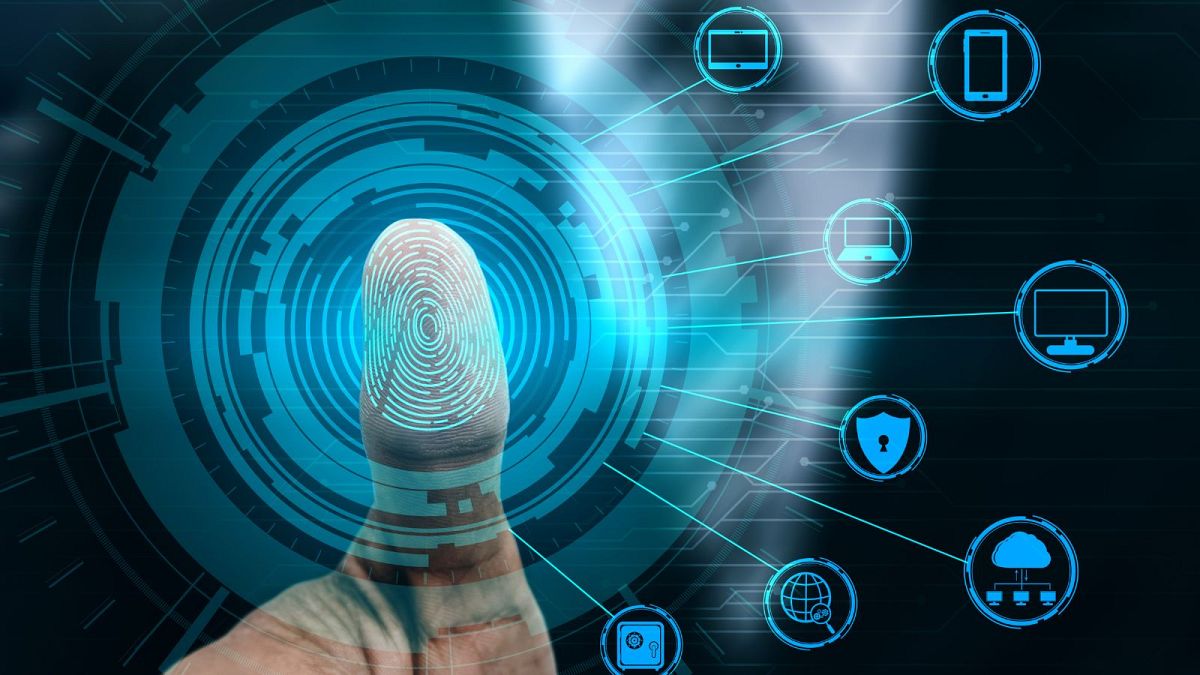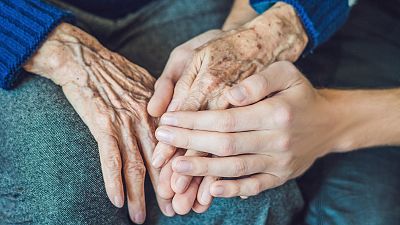The pattern on each of your fingers is unique but a team used a deep-learning system to find similarities between them.
If you’re a fan of crime TV shows, mystery novels, or true-crime podcasts, you probably have heard that fingerprints are unique.
Even identical twins who share (nearly) the same genetics don’t have the same fingerprints.
It also means that forensics experts need fingerprints from the same finger if they want to link cases together or that you need to use the same finger to unlock your phone if you are using this method on your device.
A team at Columbia University in the US says that artificial intelligence (AI) may improve forensic accuracy.
They built a new AI system to find similarities between the fingerprints of a person's different fingers.
Hod Lipson, a professor of engineering at Columbia University, told Euronews Next that one of his students "burst into his office a year ago" and said he wanted to challenge the idea that each finger’s fingerprints are unique.
"So he fed in pairs of fingerprints into a big AI system. Sometimes they came from the same person, or sometimes they came from a different person," he said.
"After a little bit of training, the AI learned that fingerprints from different fingers of the same person are actually quite similar. We just have to look at them in a different way".
When the researchers tried to publish their conclusions in a prominent forensics journal, they were rejected but have since had the research published in Science Advances.
They also looked into how their model found similarities between fingerprints.
"It ended up figuring out that some of the curvature of the ridges is the most important thing," Lipson said.
'No new discovery'
Christophe Champod, a professor of forensic science at the University of Lausanne in Switzerland and a global expert on fingerprints, said these similarities were already known.
"There is no discovery. The fact that what we call general patterns are correlated, that there are more relations between fingers of a person than fingers of different people, that is known since the basis for the use of fingerprints for identification purposes," he told Euronews Next.
He added that the AI system used in the study - called a deep contrastive network - wouldn't be useful in forensics compared to existing automatised systems.
"They didn’t do tests based on partial, distorted, complicated traces. In that scenario, I'm not at all convinced that the existing small correlations would substantially improve the sense of efficiency of the system," Champod added.
The study authors agreed this was a limitation.
"There could be some problems with degraded data because, in the crime scene, the fingerprints will usually get smudged off," said Gabe Guo, the undergraduate student at Columbia behind the research.
Champod said, however, that while the AI-powered technique is interesting, he doesn’t see it as being particularly useful for forensics.
Lipson, meanwhile, sees the system as an example of how AI can be used in the future.
"Many people think that AI cannot really make new discoveries – that it just regurgitates knowledge," he said.
"But this research is an example of how even a fairly simple AI, given a fairly plain dataset that the research community has had lying around for years, can provide insights that have eluded experts for decades".



